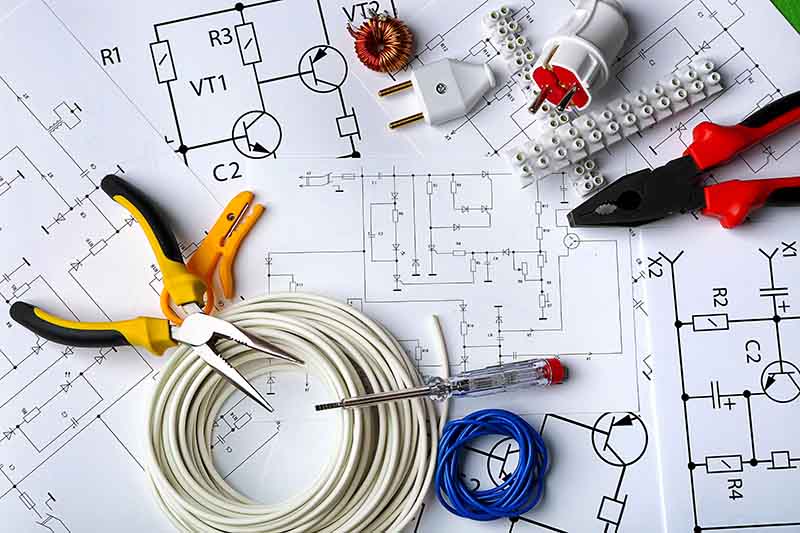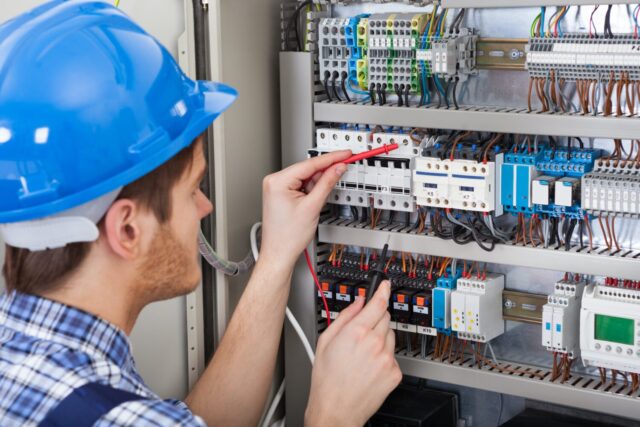
Electrical design encompasses the planning, layout, and specification of electrical systems within a given space or structure. It involves determining the optimal placement of electrical components, wiring, and equipment to ensure safe and efficient power distribution. The scope of electrical design extends from residential buildings to large-scale industrial complexes, infrastructure projects, and more.
The Role of Electrical Engineers
Electrical engineers play a pivotal role in electrical design. They are responsible for creating detailed plans for safe electric systems that address various aspects of electrical systems, including load calculations, voltage requirements, circuit designs, and equipment specifications. Their expertise ensures that electrical systems meet the specific needs and safety standards of the project.
Compliance with Electrical Codes

The Importance of Electrical Codes
Electrical codes are regulations and standards set by governing bodies, such as the National Electrical Code (NEC) in the United States. These codes exist to safeguard lives, property, and the environment by ensuring that electrical installations are safe and reliable. Compliance with electrical codes is non-negotiable in the electrical design and contracting process.
National Electrical Code (NEC)
The NEC is a comprehensive set of electrical standards that outlines the requirements for electrical installations in the United States. It covers a wide range of topics, including wiring methods, electrical equipment, grounding, and protection against electrical hazards. Electrical engineers and contractors must be well-versed in the NEC to ensure compliance with its provisions.
Local Electrical Codes
In addition to the NEC, local municipalities and jurisdictions may have their own electrical codes and regulations. These codes can vary from one location to another, so it is crucial for electrical contractors to be aware of and adhere to the specific codes governing their project’s location.
Quality Assurance in Electrical Contracting

The Significance of Quality Assurance
Quality assurance (QA) in electrical contracting is a systematic approach to ensuring that electrical systems are designed, installed, and maintained to meet specified standards and performance criteria. It involves proactive measures to prevent defects and ensure the reliability and longevity of electrical systems.
Key Elements of Quality Assurance
- Design Review: A thorough review of electrical design plans to identify and address potential issues before installation begins.
- Material and Equipment Inspection: Verification that all materials and equipment meet specified standards and are in good condition before installation.
- Skilled Workforce: Employing skilled and qualified electricians and technicians with the necessary training and certifications.
- Testing and Commissioning: Rigorous testing and commissioning procedures to ensure that electrical systems perform as intended.
Benefits of Quality Assurance
Implementing QA measures in electrical contracting offers several benefits, including:
- Enhanced Safety: Rigorous QA reduces the likelihood of electrical accidents and hazards.
- Improved Reliability: Electrical systems that meet high-quality standards are less likely to experience failures or downtime.
- Cost Savings: Preventing defects and addressing issues early in the project can save significant costs associated with rework and repairs.
Best Practices in Electrical Design & Contracting

Collaboration and Communication
Effective communication between electrical engineers, contractors, and other stakeholders is crucial for a successful project. Regular meetings and clear documentation help ensure that everyone is on the same page regarding design specifications and project milestones.
Budget Planning
A well-defined budget is essential for managing costs throughout the project. Unforeseen expenses can arise, so it’s essential to allocate a contingency budget for unexpected issues that may arise during construction.
Risk Assessment
Identifying potential risks early in the project allows for proactive risk mitigation measures. This includes assessing environmental factors, safety hazards, and regulatory compliance challenges.
Sustainability Considerations
As sustainability becomes increasingly important, integrating energy-efficient solutions and renewable energy sources into electrical design can benefit both the environment and long-term cost savings.
Training and Education
Continual training and education are vital for electrical engineers and contractors to stay updated with the latest technologies, codes, and best practices in the industry.
Final Words
In the realm of electrical design and contracting, ensuring compliance with electrical codes and maintaining quality assurance are paramount. These practices not only ensure the safety and reliability of electrical systems but also contribute to the overall success and longevity of construction projects.
By adhering to the best practices outlined in this article, electrical professionals can navigate the challenges of their field while delivering top-quality, compliant, and safe electrical systems for a wide range of applications.













